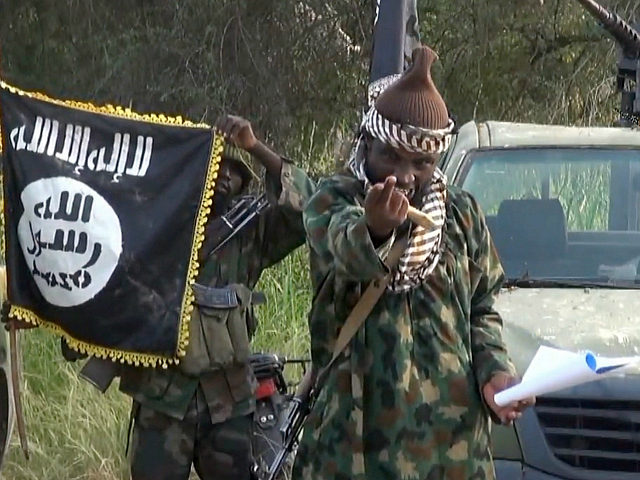The United Nations children’s organization UNICEF announced this week that the Islamic State affiliate Boko Haram has used 27 children as suicide bombers in the past three months, nearly the same amount as in the entirety of 2016.
The number represents a 200 percent increase from the same time period in 2016, when the organization recorded nine instances of child suicide bombing.
Boko Haram has increasingly turned to using children as suicide bombers as police forces in Nigeria’s northeast have implemented security measures to keep the terrorist group from successfully executing bombings at crowded markets, girls’ schools, and Shiite mosques.
“This is the worst possible use of children in conflict,” UNICEF officials said in their report on the topic, “Silent Shame: Bringing Out the Voices of Children Caught in the Lake Chad Crises.” The report revealed that observers have documented 117 such child suicide attacks in the past three years “across Nigeria, Chad, Niger and Cameroon.”
Marie-Pierre Poirier, UNICEF’s regional director for West and Central Africa, emphasized the importance of local law enforcement treating the children as “victims, not perpetrators.” “Forcing or deceiving them into committing such horrific acts is reprehensible,” she said.
This is especially important with children who detonate their weapons and survive. Many families shun such children – who have likely been in Boko Haram captivity for some time before being forced into the suicide bombing – fearing that they remain a threat due to brainwashing.
“Society’s rejection of these children, and their sense of isolation and desperation, could be making them more vulnerable to promises of martyrdom through acceptance of dangerous and deadly missions,” the UNICEF report read.
The Nigerian government has provided a refugee camp for those displaced by Boko Haram – those who live in villages raided by the terror organization and have forced to flee. These camps often also serve for holding places for freed Boko Haram captives, whom the military and law enforcement must process before releasing to ensure that they are not preparing jihadist attacks. Many freed captives show signs of indoctrination, particularly adolescents and children.
In January, the Nigerian military bombed its own refugee camp, killing over one hundred in an incident deemed an accident.
Boko Haram has increasingly relied on the use of child suicide bombers to execute its attacks. In December, two girl suicide bombers aged between seven and eight struck a marketplace in the capital of Borno state, Maiduguri.
Older girls and women being used as suicide bombers have reportedly resorted to bringing infants into attack sites with them to prevent law enforcement from scrutinizing them too closely since authorities have begun taking a closer look at women and girls in burqas to ensure they are not carrying bombs.
While continuing to struggle to contain Boko Haram, the Nigerian government long ago claimed the group no longer had the power to terrorize civilians. Nigerian President Muhammadu Buhari declared in December 2015 that the military had “technically defeated” the group. After that proved untrue as the military continued to respond to bombings, village raids, and abductions, seven months later the military once again declared victory.
“We have come to the point that we can beat our chest and decisively say we have dealt with Boko Haram,” Nigerian army spokesman Col. Sani Usman said at the time. “The situation in the northeast has tremendously improved. The military operations or the fight against terrorism and insurgency in the northeast is hinged on three things.”
The UNICEF report arrives shortly before the world will observe the third anniversary of the abduction of over 300 girls and young women from Chibok, northeastern Borno state, by the Boko Haram terrorist group. The mass abduction turned Boko Haram into an internationally-recognized Sunni jihadist group. While some of those abducted escaped, most remain in captivity.
Boko Haram has itself continued to grab headlines, however. This week, the Nigerian government’s Department of State Security Service announced that they had thwarted a plan by the group to attack the American and British embassies in Nigeria. Officials announced that they had arrested one 20-year-old man suspected of organizing the attack.
Boko Haram has killed an estimated 20,000 people since 2009, according to Reuters.

COMMENTS
Please let us know if you're having issues with commenting.